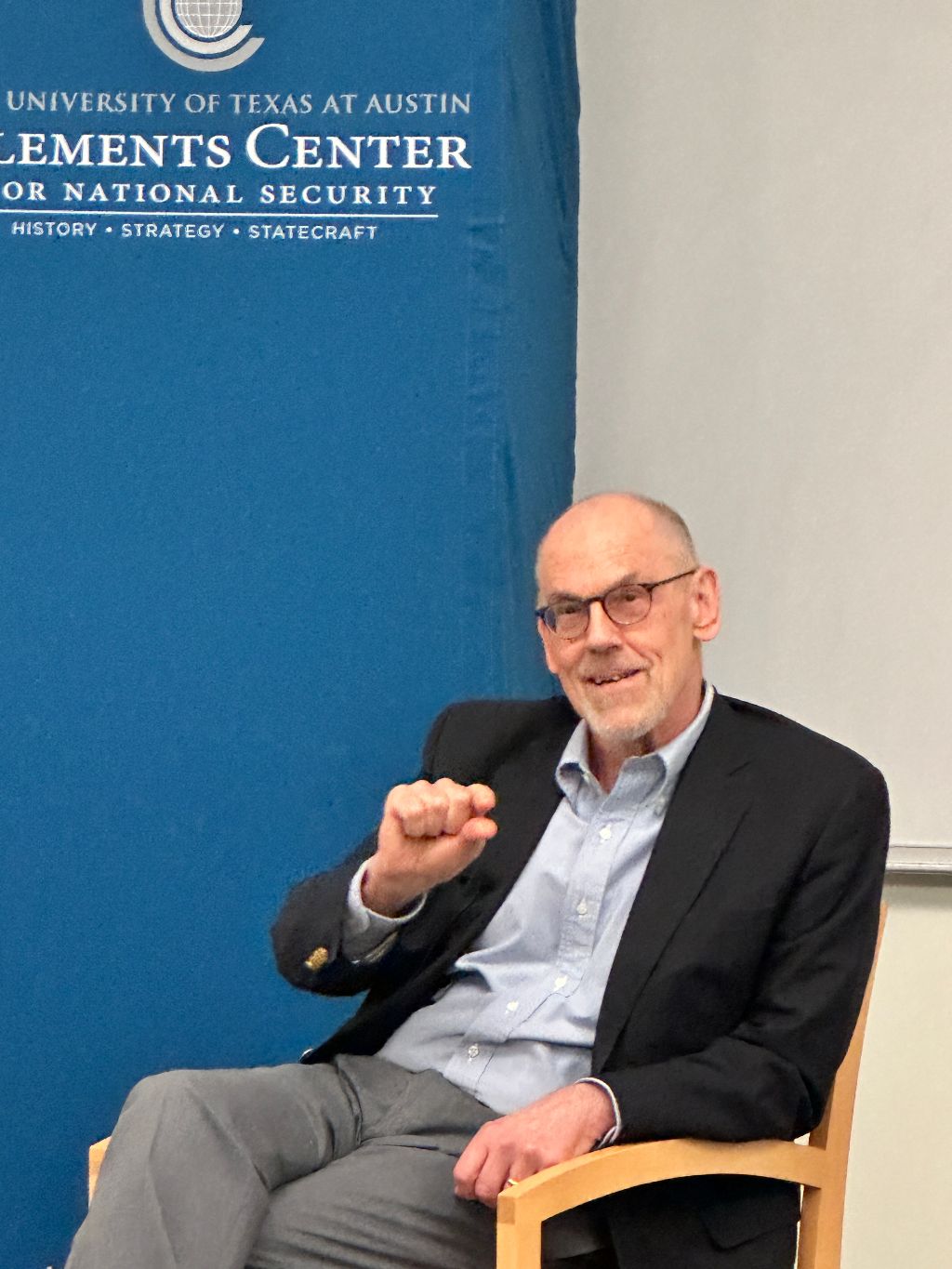While radio often seems nostalgic now, it had great value during the Cold War, from the 1950s to the 1990s. Writing of Radio Liberty and Voice of America in his new book Cold War Radio, Dr. Mark G. Pomar says they “were born of the Cold War. They were conceived not only as weapons to confront the Soviet Union but also as bridges for mutual understanding with the Russian people.” This book tells that story for the first time in vivid detail.
Pomar is a senior fellow at the Clements Center for National Security and an adjunct lecturer in the LBJ School of Public Affairs. His PhD is in Russian Studies from Columbia University. Both are at the University of Texas right here in Austin. This report is based on a talk he gave at the School of Public Affairs in October for the launch of his book.
In writing the book, Pomar said “I wanted to communicate what it was like to be a Cold warrior, and also, I wanted to sit back and say some things worked.” Pomar pointed the finger at Nixon as the president showing the least support. “I found in the archives a communication between Kissinger and Nixon, where Kissinger said ‘your idea of closing Radio Free Europe might be a good idea if we can get a quid pro quo.” As for the most supportive presidents, Pomar identified Kennedy and Reagan.
Pomar gave a unique insight into why the world is now confronted with a militant Russia. “So many of the grievances that Putin has put forward go right back to the Cold War and the way the Soviet Union fell apart. I will illustrate the connexion through a story. In 1982 I joined Radio Liberty and at that time the Reagan Administration put in place a new management. Many of the managers really emphasized the importance of nationalism – that Russians were victims of Communism. I remember going down to the canteen in a building in Munich and seeing a group of Russian broadcasters, so I sat down to have lunch with them. I started talking about this approach to nationalism. I can see on their faces I’m not getting to them at all. Finally one of them said ‘You dumb American! Don’t you understand that Communism is dying but nationalism is growing? Nationalism in the Soviet Union combined with Soviet practice: this is what’s going to hit you in the future. This is what you are going to find terrible.’ That incident from 1982 pretty much describes what we see today in terms of Putin and his approach to Ukraine. That guy could just as easily have been Putin.”
Another encounter in 1991 really makes the point. The Western radio stations were in negotiation with Soviet officials to get the right to use certain frequencies for broadcasting into the Soviet Union from eastern Europe. Pomar said an official, with his face full of anger, told him “You Americans have got to understand right now we are weak. We have to agree to all these things you are asking for. But when we get strong, when we get off our knees, we’re going to kick you bastards out of here, and you won’t know what will happen to you.” This finally transpired in February of this year, when the office Pomar helped establish was closed. The frustration was palpable even in those ‘magic years’ of the early 1990s.
The Soviets, since the 1950s, did their best to jam the radio signals from the BBC, Radio Liberty, Radio Free Europe and Voice of America until the late 80s. “We never jammed Soviet broadcasts: you could listen to Radio Moscow, buy Soviet newspapers and books in New York City.” Reagan would ask Gorbachev at every meeting “why are you jamming us?” Pomar said that even in 1987 no Soviet official would meet with him as a representative of the radio networks, but in 1988 that changed. The head of the Soviet delegation said to him at a meeting ‘We have noticed an improvement in your programming.’ “Once he said those words, we knew something big was happening. We had never heard those words in the course of the entire Soviet period. Two months later jamming ceases. Four months later Radio Liberty (RL) and VOA has an office in Moscow.”
Looking back, Pomar explained that the Soviets divined entirely the wrong motives behind the radio broadcasts. “They ascribed to us a level of danger, that of great masterminds who were plotting to bring down the Soviet Union. All we were doing was in the general news, but feature stories comprised 70% of what was on the air. By broadcasting Soviet history we thought it would help Soviet citizens understand and function as informed citizens. We really thought truth mattered. Maybe it was idealistic.”
To put this book together, Pomar listened to hundreds of hours of VOA and RL Russian-language broadcasts, examining nearly 1,000 individual programs. He describes these radio archives as a “tremendous resource. You cannot study the history of Russian literature from the 1950s to now without it.” For those who want to listen to some Radio Free Europe broadcasts, they are online at:
www.osaarchivum.org
Pomar has written a fascinating book, which I highly recommend. It is 307 pages, including 19 pages of notes and bibliography, and 17 B&W illustrations. I would have liked each one to be dated as it’s not obvious even which decade the images come from.
Cold War Radio is published by Potomac Books. It lists for $34.95
Photo by C. Cunningham

